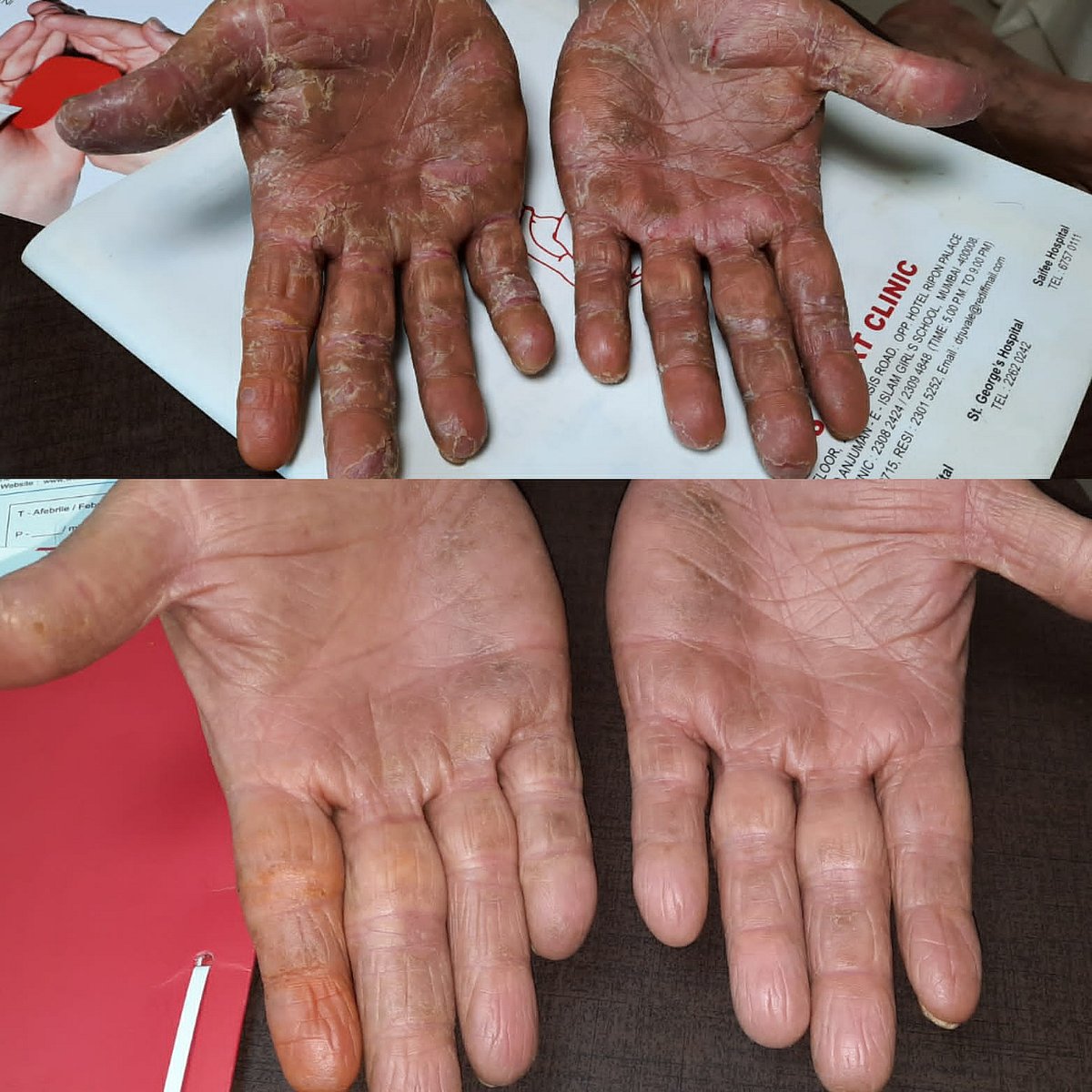Mumbai: Doctors report surge in fungal infections due to monsoon
Occur in private areas, groin, underarms and areas prone to sweating, doctors discourage self-medication.

A 65-year-old patient treated by Dr Shraddha Deshpande of Wockhardt Hospitals in Mumbai Central |
Mumbai: Ongoing monsoon has led to the surge in fungal infections across the city. Fungal infections, typically present as erythematous rashes, can be coin-shaped or ring-shaped, occur in private areas, skin folds, groin, buttocks, underarms etc. They occur more frequently in areas prone to sweating. Doctors have witnessed around 10-15 cases weekly and some of them serious.
Erythema rashes is a type of skin rash caused by injured or inflamed blood capillaries. It occurs in response to a drug, disease or infection. Rash severity ranges from mild to life threatening.
Dr Shraddha Deshpande, consultant plastic, reconstructive and aesthetic surgeon at the Wockhardt Hospitals in Mumbai Central, said a 65-year-old gentleman was suffering with itching and multiple lesions on his hands which was reported as a case of intertrigo. He was treated with topical and oral anti-fungal medication for a few months which enabled complete recovery and relief from symptoms.
ALSO READ
“Moisture promotes growth of fungi and allows the infection to flourish. It can also occur in the web spaces of toes or sole of feet - when feet remains confined to moist shoes for a long time. This condition is also called athlete’s foot. Fungal infection in the fingers and nails can lead to discolouration and deformity of nails. This is called paronychia. Treatment of fungal infections involves topical anti-fungal creams and dusting powders and oral medications,” she said.
Doctors from the civic and state-run hospital said they witnessed at least five to 10 patients reporting post-COVID fiery red rashes on the body every week. “All patients give a preceding history of fever for a couple of days. Many would not have tested for COVID but an investigation shows high COVID antibodies signifying a recent infection,” she said.
The infection starts with skin changes that worsen with itching and redness, etc. “People self-medicate and mostly use steroid-based creams. While they get temporary symptomatic relief, the fungi’s growth continues. By the time they reach us, the infection is extremely stubborn,” said a doctor from the skin department of JJ Hospital. Of the daily 350 OPD patients, nearly 80% are found with fungal infections, he said.
RECENT STORIES
-
-
-
-
-